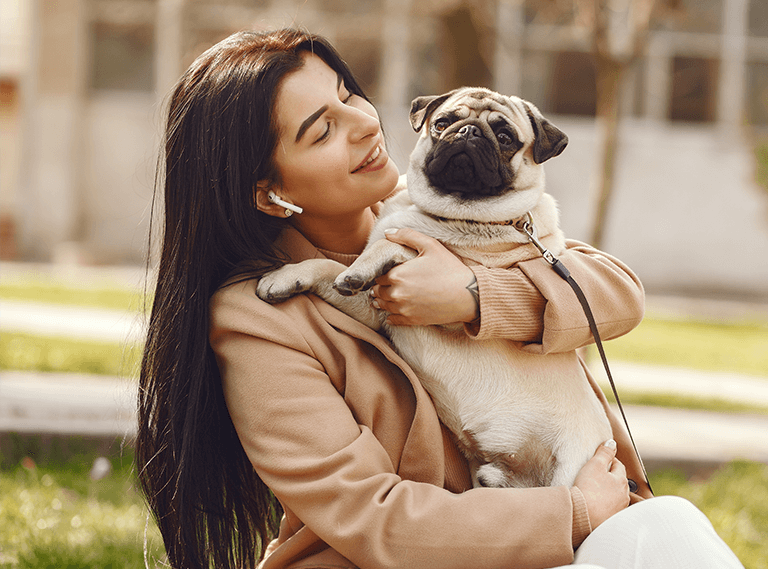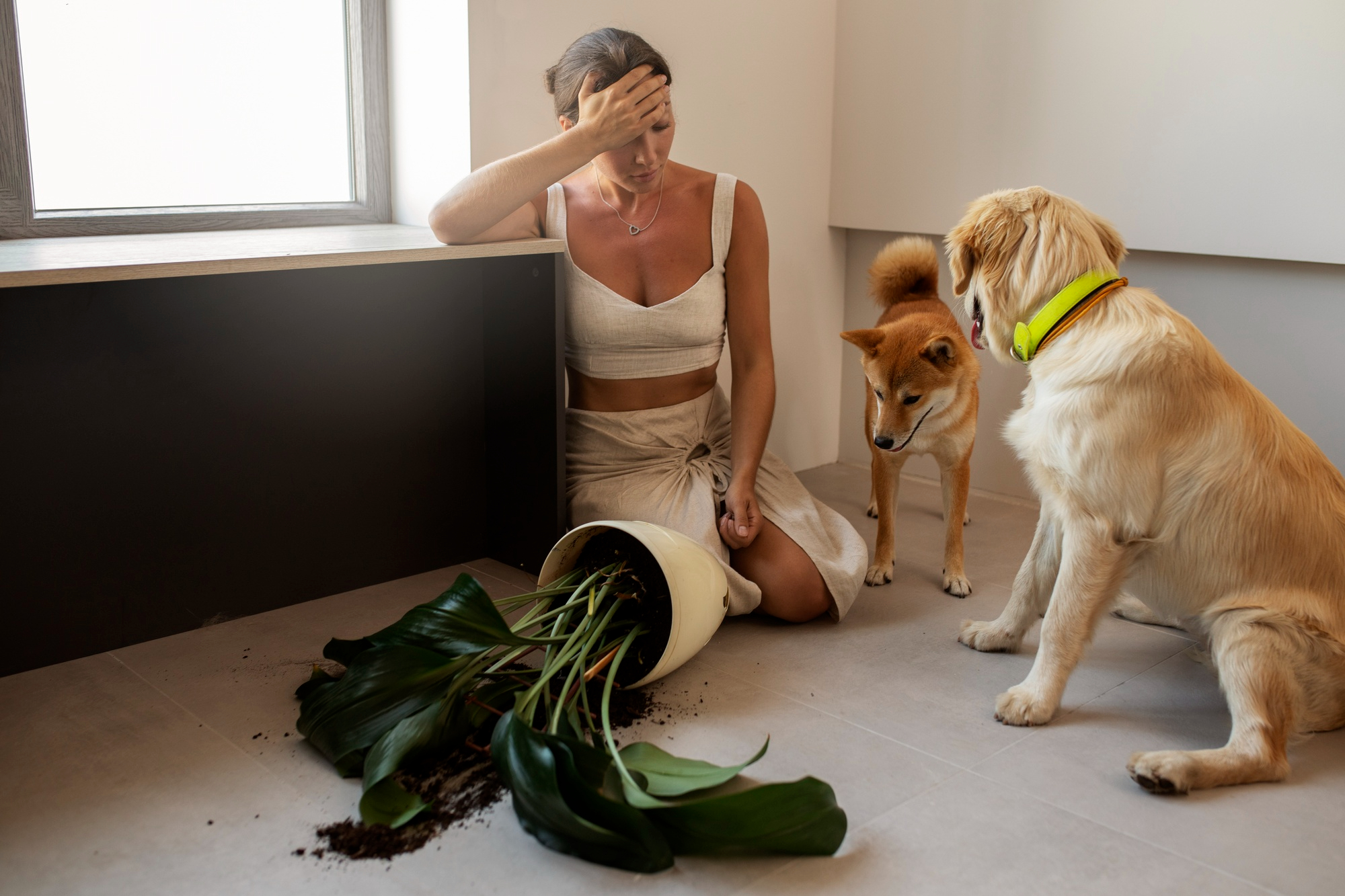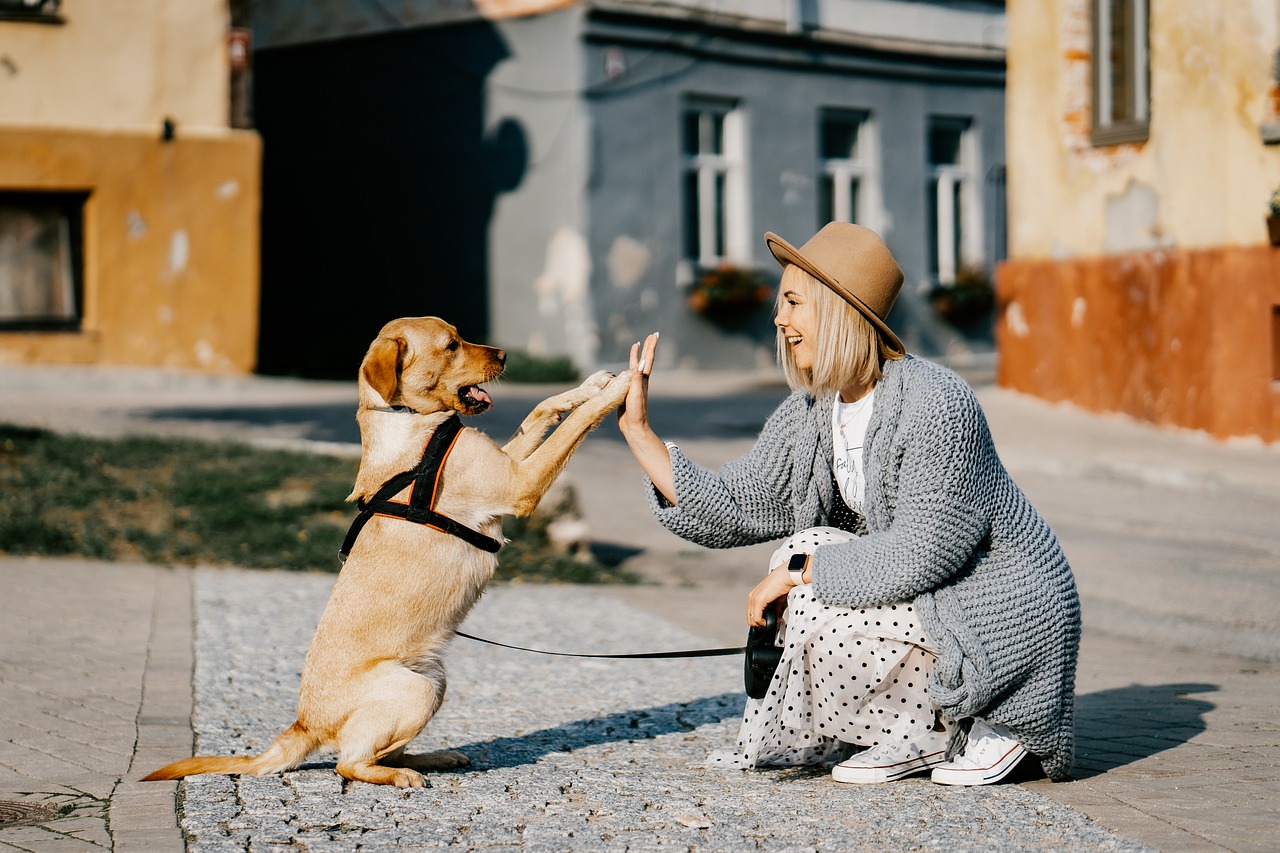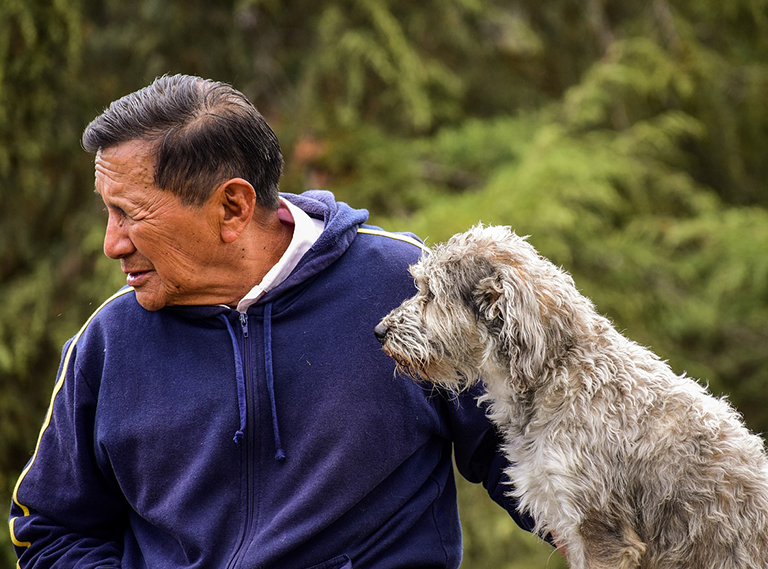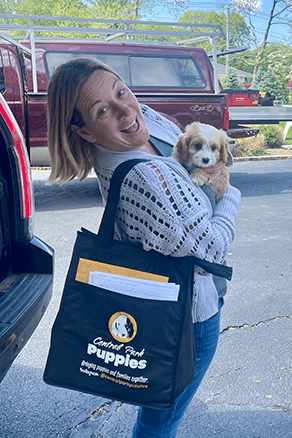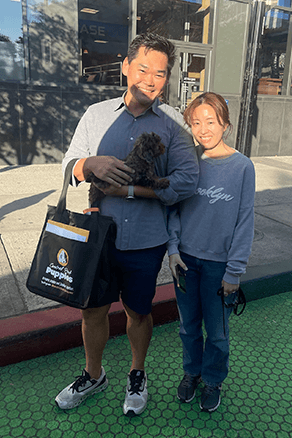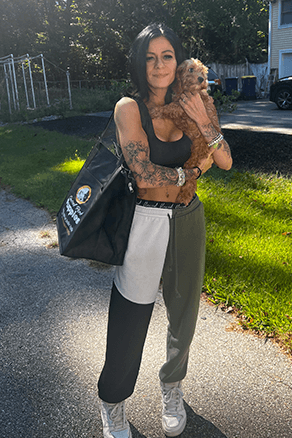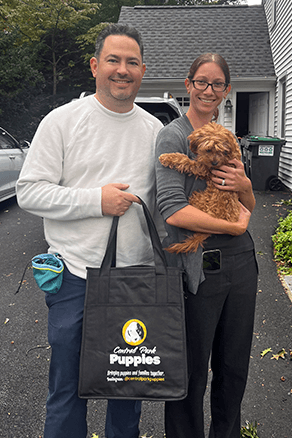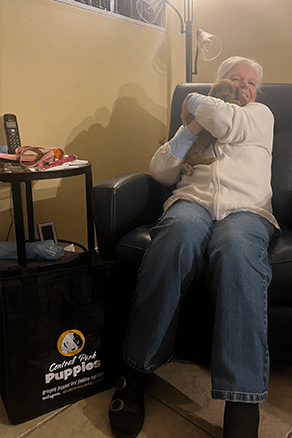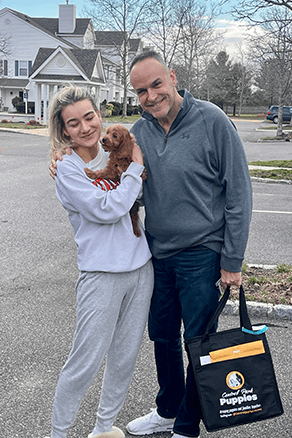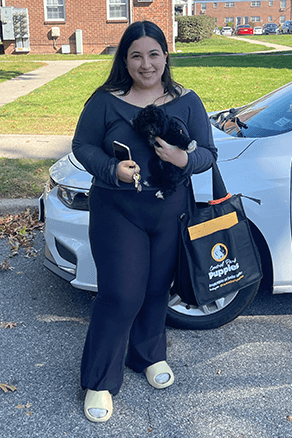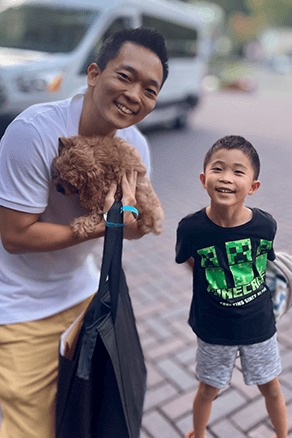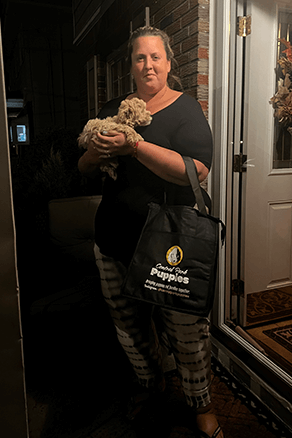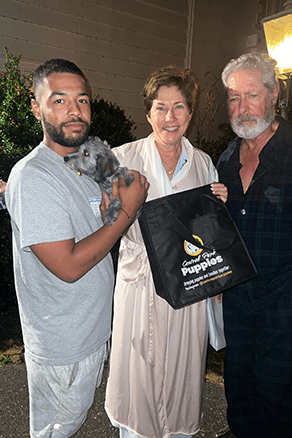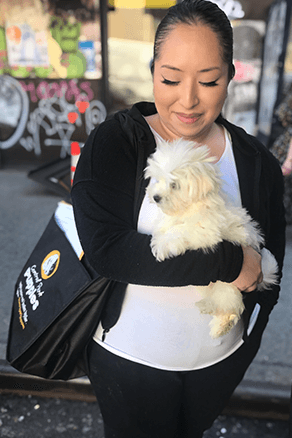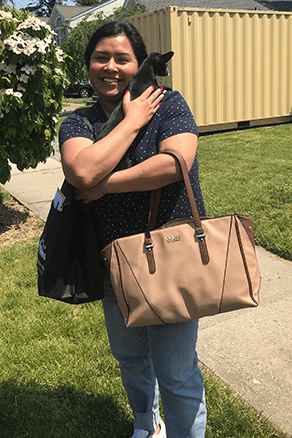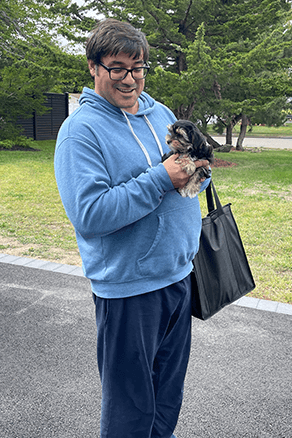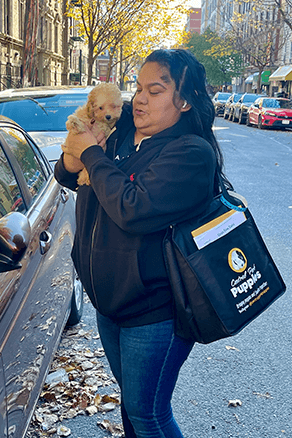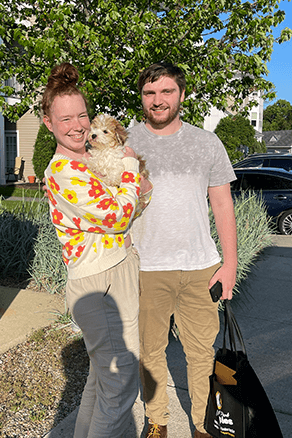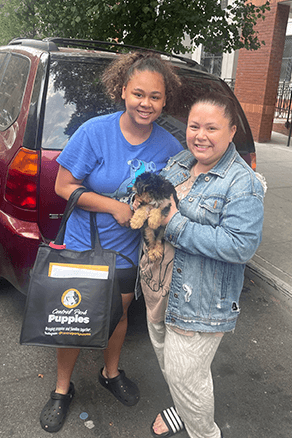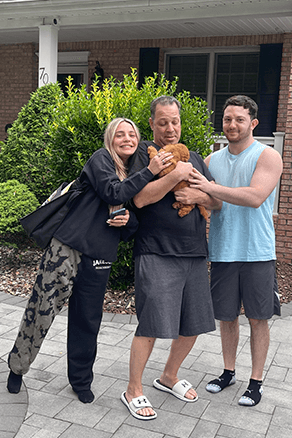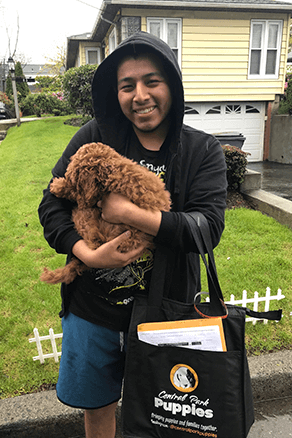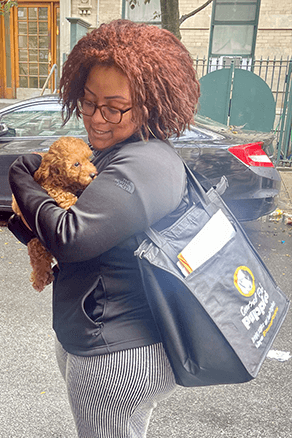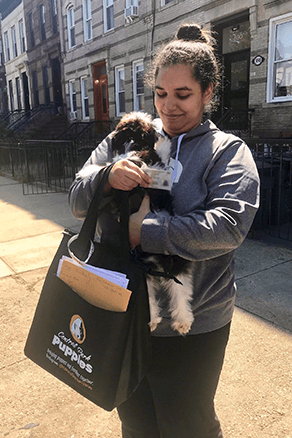Welcome to our guide on the essential questions to ask when buying a puppy! Adopting a new pup can be one of the most joyful experiences for any new dog owner. But it can quickly become a disappointing ordeal without doing your due diligence and asking the right questions.
We've compiled this list of 20 essential questions to help ensure a smooth and successful adoption process.
Health and Medical History Questions
It's necessary to ask about the puppy's health history and medical treatment when considering buying a puppy. Asking about veterinary care, vaccinations, and any health conditions is essential.
The following questions should get you the answers you need:
Has the puppy been vaccinated and dewormed?
A responsible breeder will have vaccinated and dewormed the entire litter before selling any of their puppies. Asking if this has been done is one of the essential questions you should ask when considering buying a puppy, as it will ensure that your pup is in good health before coming home with you.
Has the puppy been examined by a veterinarian?
In addition to confirming the puppy was vaccinated and dewormed, find out if a veterinarian has examined the litter. A thorough health exam by a vet will help determine any underlying medical issues or health problems that may be present in the particular breed or individual and provide reassurance that the pup is healthy overall.
Are there any known medical issues or genetic predispositions?
Knowing if your potential pup may be prone to any known medical issues or genetic predispositions is essential. Learning these details upfront will prepare you for caring for your pup throughout their life.
Parental History Questions
Learning about a puppy's parents" is essential before you take responsibility for it. Understanding the parent's history can give you an idea of the potential puppy's temperament, any genetic diseases they may be at risk for, and how responsible their breeders were.
We recommend asking these questions:
Can you meet the puppy's parents?
One of the most important questions when considering a potential puppy is whether you can meet the parents. Meeting the pup's parents will give you a good sense of what to expect in terms of temperament and also provide you with an opportunity to assess how responsible the breeder is when caring for and socializing their puppies.
Are there any known health or behavioral issues in the parents?
Another critical question to ask when buying a puppy is whether the parents have any known health or behavioral issues that could be passed down genetically. Knowing whether either parent has genetic conditions such as hip dysplasia, eye issues, allergies, or chronic illnesses can help determine the best breed for your lifestyle.
Additionally, asking about behavioral issues like aggression or anxiety can give you a better idea of what kind of training and socialization may be necessary for your potential pup.
How were the parents trained and socialized?
It's essential to know how the puppy’s parents were trained and socialized, as this will also provide some insight into what type of behavior and obedience will come from your particular breed.
Responsible dog breeders will have taken steps to ensure that their dogs are trained in basic commands such as sit, stay, heel, and come and that they have had enough regular contact with humans to be comfortable around people.
Breeder and Kennel Questions
When buying a puppy, it's vital to learn about the breeder and kennel, as this helps ensure that you're getting a healthy pup from an ethical source. It is vital to ask the breeder questions such as how long they have been breeding puppies, how many litters they have per year, and how they socialize their puppies before selling.
Good breeders will be happy to answer these questions, provide you with health certificates for the puppies, and even help you decide if their breed type is right for your lifestyle.
A good breeder with a kennel club affiliation should also be able to provide you with a pedigree of the puppy's parents and information about their breed's average size, temperament, and health issues.
We recommend seeking answers to these questions before making a decision:
How long have you been breeding puppies?
A good breeder will have years of experience with their chosen breed and understand the health issues associated with these dogs. Knowing this information is vital in helping future pet parents make well-informed decisions about the right puppy for them.
How many litters do you have per year?
Responsible breeders generally keep their litters per year to a minimum - usually no more than two or three - giving each pup adequate attention as it grows and enough time for socialization. A small number of litters ensures that the breeder is not overwhelmed by too many puppies at one time and can adequately care for each one.
How do you socialize your puppies before they are sold?
Many reputable breeders are dedicated to socializing their puppies before selling them, which helps ensure healthy emotional development in each pup once brought home.
Good breeders will provide exposure to other dogs, people, and environments so they can handle potential stressors and be used to new experiences.
Behavioral Questions
Asking questions about the puppy's temperament and energy level can reveal crucial information to potential owners, such as how much exercise and training will be required and how the pup interacts with people and other dogs. Most breeders know that puppies start to display their personalities from six weeks of age, so they should be able to provide valuable insight into the pup's character.
Questions you should consider asking about a new puppy's behavior include:
How does the puppy interact with other dogs and people?
Good breeders will pay close attention to the puppies in their litter, monitoring their interactions and socialization. Asking questions about how easily the puppy adjusts to meeting strangers or playing with other dogs can help potential owners understand what they may deal with once they bring their new puppy home.
How much exercise and training will the puppy require?
Knowing how much exercise and training will be required can help new owners prepare for a puppy's additional needs that might arise after taking their puppy home. Responsible breeders will happily provide information about the energy level or activity level necessary. Asking questions about recommended activities, like dog sports or agility training, can help you understand how to keep your pup happy and healthy.
What is the puppy's temperament and energy level?
Asking what kind of temperament and energy level your prospective puppy has can provide insight into its behavior and expected needs over time. A good breeder should be able to accurately describe the individual personality traits of each pup in terms of play styles, sleep patterns, reaction/response levels, and more.
General Care Questions
Understanding how to care for your new puppy can depend upon asking the right breeder questions regarding a pup's diet, grooming, and potty training. Good breeders can provide details about specific breeds, genetic conditions that may arise, what type of food, and how much the puppy should eat.
What type of food and how much should the puppy eat?
Information regarding the best food for the puppy's age, size, and breed can help ensure your new furry friend receives all the necessary nutrition. Feeding a puppy too much or too little can cause serious health issues, and it's critical to know if they should stick with the same food once they are in their new home or if you need to switch to something else based on the pup's individual needs.
What is the recommended grooming routine?
Different breeds have different requirements for bathing, brushing, and trimming; some may need more regular maintenance than others. Knowing how often your new puppy requires baths and grooming can help pet parents ensure their new puppy receives proper care.
What is the best way to potty train the puppy?
Potty-training puppies may look overwhelming initially, but responsible breeders can guide you on how best to introduce the process. Knowing what specific materials may be necessary, such as puppy pads, can help potential owners prepare for the work involved.
Asking questions about setting up a routine, offering rewards, and the environment ideal for potty training can help owners get off to a great start. Additionally, asking dog breeders which techniques work best for their particular litter allows owners to begin with greater confidence and understanding.
Lifestyle and Home Environment Questions
When buying a puppy, it is necessary to determine if the pup will be well-suited for your home and lifestyle. Breeders should be able to provide helpful information, such as what type of exercise and activity each dog will require and how many other dogs they have previously been exposed to. The entire litter won't be the same, of course, but asking these questions can help buyers determine if their home environment suits the breed they are looking at - something that can save them stress down the line!
The following questions are a great place to start when it comes to finding out if a specific puppy will be the right fit:
Is the puppy well-suited for my lifestyle and living situation?
Specific dog breeds have different energy levels, making it essential to ask a breeder about the pup's needs and requirements regarding exercise, activity level, and play styles. An idea of what they may expect regarding play styles, sleep patterns, reaction/response levels, and more can help ensure the puppy will be a perfect fit.
What type of exercise and activity will the puppy require?
Knowing how long a puppy can be left alone during the day is crucial in ensuring that potential owners can devote enough time and attention to their pet. Understanding the exercise and activity levels the pup will require will help owners plan activities that fit within their schedule.
How long can the puppy be left alone during the day?
Potential owners must consider how much time they can devote to their pet and if that commitment fits their lifestyle. For instance, if you work full-time, a high-energy breed may not be best suited for your situation because of the time you can devote to them. Dogs with high energy levels need a lot of exercise and activity to keep them healthy and happy, which is something to consider when selecting a pup.
Separation anxiety can also be an issue, so it's important to consider the pup's temperament and if they can handle being left alone or if they will require a companion.
Final Questions
Adopting a puppy is an exciting experience - but one that should not be taken lightly! Prospective buyers should also consider asking breeders the following questions before making the big decision:
Is there a return policy or health guarantee?
Many responsible breeders offer puppies a return policy or health guarantee in case any health issues develop after purchase. Inquire about potential policies if the breeder does not provide them, as they can help owners prepare if their pup has any health issues down the line.
What support and resources are available after purchase?
Responsible breeders should be able to provide prospective buyers with information on genetic testing and any potential health issues in that particular dog breed. If a breeder cannot provide this information, it may be best to look elsewhere.
Even experienced dog owners may overlook some key points when considering a new pup. Asking for advice can help ensure you have all the information required to make an informed decision when buying a pup at such a young age.
Conclusion
Making the right decision involves asking the right questions. Prospective owners should always ask about the puppy's parents and medical history and determine the breeder's policies and resources. Many reputable breeders will take back a puppy if it develops any health issues down the line, so confirming this may give peace of mind when deciding to adopt a new furry friend.
Furthermore, researching various breeds of dogs before choosing one is essential, as some can have potential genetic health issues that should be discussed with the breeder before taking a puppy home.
Giving their new pup the best start in life is the number one priority. Considering the above factors and getting answers to these questions can help new owners make an informed decision and provide their new pup with the best home. Share this article with all of the potential puppy parents in your life so they know the right questions to ask!
FAQs
How do you evaluate a puppy before you buy it?
When evaluating a puppy, it is crucial to consider factors such as the puppy's age and health, the breeder's policies, the pup's parents and medical history, and the breed's potential health issues.
Additionally, asking questions about exercise and activity requirements and how many other dogs the breeder has is essential. Finally, research the particular breed of puppy to ensure it has all the necessary qualities you seek. So many dogs need a loving home, and it is vital to make sure you find the right puppy for your lifestyle.
What questions will a breeder ask me, and what should I ask a dog breeder?
A breeder should ask questions to ensure that a potential puppy buyer is willing and able to provide the pup with a loving home. Questions may include things such as how long the buyer expects to keep the pup if there are any other pets, and what kind of lifestyle and activity level to expect.
Buyers should ask questions about the breeder's policies, such as if they offer a return policy or health guarantee and if they can provide information on the puppy's parents and medical history. Additionally, it is essential to ask questions about the particular breed of puppy.
How do you pick the best puppy from a litter?
When buying a puppy from a full litter, consider the puppy's weeks of age and health, the breeder's policies and resources, the pup's parents and medical history, potential health issues in that particular dog breed, and activity requirements. Ask questions about how many other dogs the breeder has and any return policies or health guarantees they may have. Finally, researching breeds of puppies before deciding will ensure you find a pup that fits your lifestyle.
What are the red flags when buying a puppy?
Red flags to watch out for when buying a puppy include a breeder who is unwilling to let you meet the pup's parents, poor living conditions for the pups, and a lack of knowledge about the breed or health issues in that particular breed.
What to avoid when choosing a puppy?
When choosing a puppy, avoid selecting a pup from a breeder who is unwilling to answer questions about the puppy's parents or medical history.
What should you not say to a breeder?
Avoid making negative comments about the breed or asking if they have any "cheap" puppies. A responsible breeder will want to ensure their pups are going to good homes and may be put off by questions that could indicate a poor-quality buyer.
